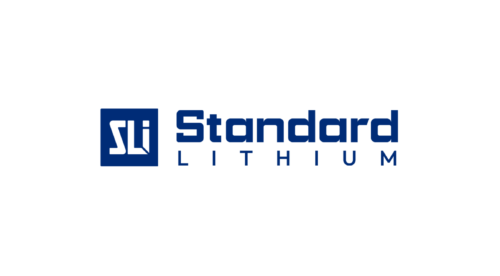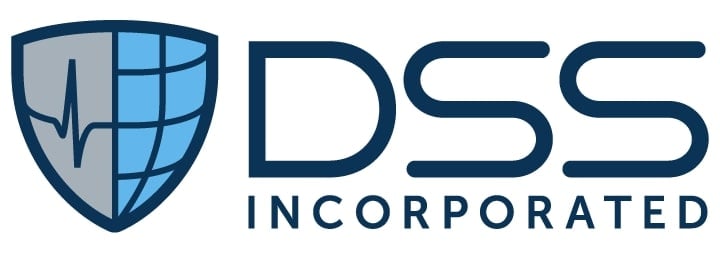Investing in stocks under $2 can be an enticing opportunity for those looking to enter the stock market with minimal capital.
Robinhood, with its user-friendly interface and commission-free trading, has become a go-to platform for retail investors seeking to explore the best penny stocks.
This article aims to guide you through the best Robinhood stocks under 2 USD, providing insights into why these stocks are worth considering and the potential risks involved when trading penny stocks.
Best Robinhood Stocks Under 2 Dollars (Updated)
Standard Lithium Ltd. (NYSEAMERICAN: SLI)
Standard Lithium Ltd. explores and develops lithium brine properties in southern Arkansas, leveraging proprietary ion-exchange technology to produce battery-grade lithium with a lower environmental footprint.
As of May 17, 2025, SLI trades at $1.61, comfortably within the penny-stock range and offering a sub-$2 entry point for investors seeking EV-battery exposure . The company’s flagship Lanxess project spans roughly 150,000 acres and targets some of the highest-grade brine resources in the U.S.
Institutional interest is building: Lighthouse Investment Partners recently acquired 200,000 shares, and Barclays PLC boosted its stake by 25.5% in Q4 2024, underscoring confidence in SLI’s long-term lithium roadmap.
Standard Lithium’s balance sheet is solid, with sufficient cash runway into 2026 to advance pilot operations and scale up commercial production.
Technically, SLI has reclaimed its 50-day moving average and is primed for a potential breakout as global lithium demand accelerates amid the EV transition. With a market cap near $315 million and a P/E ratio below 3, Standard Lithium offers both value and growth potential in a sector where upstream supply is critical.
Key Risks: As a development-stage miner, SLI faces execution risk around pilot scaling, project permitting, and commodity-price volatility. Investors should weigh lithium-market cycles and financing needs before allocating capital.

Opendoor Technologies Inc. (NASDAQ: OPEN)
Opendoor Technologies Inc. is an innovative company that seeks to disrupt the traditional real estate market by offering a digital platform for buying and selling homes.
The company uses technology to streamline the real estate transaction process, making it faster and more transparent for both buyers and sellers.
Opendoor’s platform allows users to request cash offers on homes, conduct virtual tours, and close transactions online.
As a pioneer in the iBuying industry, Opendoor has expanded rapidly, focusing on key urban markets in the United States.
The company’s business model involves purchasing homes directly from sellers, making necessary repairs, and then reselling them on the open market.
This approach allows for quick turnaround times and appeals to sellers looking for a hassle-free sale.
Despite its innovative approach, Opendoor operates in a highly competitive market with significant exposure to real estate market fluctuations.
The company’s financial performance can be heavily influenced by changes in housing prices, interest rates, and overall economic conditions.
Investors interested in Opendoor should consider the risks associated with the real estate sector, as well as the company’s growth potential as it continues to scale its operations.

DSS, Inc. (NYSEAMERICAN: DSS)
DSS, Inc., also known as Document Security Systems, Inc., specializes in providing security products and services designed to protect documents and digital information from fraud, counterfeiting, and identity theft.
The company serves a global customer base, including businesses and government entities, offering solutions that ensure the authenticity and security of sensitive information.
DSS’s product portfolio includes secure printing technology, digital authentication, and anti-counterfeiting solutions.
These offerings are increasingly relevant as the world moves towards greater digitization and cyber threats continue to evolve.
The company’s strong emphasis on innovation positions it well to capitalize on the growing demand for document security in both public and private sectors.
Financially, DSS has demonstrated resilience and adaptability, with a focus on expanding its market reach and diversifying its revenue streams.
The company’s strategic acquisitions and partnerships, particularly in emerging markets, have bolstered its growth prospects.
However, potential investors should be mindful of the challenges in the cybersecurity sector, including the need for continuous innovation and the potential for regulatory changes.

Ur-Energy Inc. (NYSEAMERICAN: URG)
Ur-Energy Inc. is a uranium mining company engaged in the exploration, development, and production of uranium resources in North America.
The company’s flagship project, the Lost Creek in-situ recovery facility in Wyoming, is one of the lowest-cost uranium production sites in the United States.
Ur-Energy’s operations are critical for supplying uranium to meet the growing global demand for nuclear energy, which is increasingly viewed as a key component of the transition to low-carbon energy sources.
Ur-Energy’s strategy focuses on maintaining a strong balance sheet while advancing its exploration and development projects.
The company is well-positioned to benefit from potential increases in uranium prices driven by the global push towards cleaner energy and the anticipated growth in nuclear power generation.

Best Penny Stocks Under $2 on Robinhood to Watch
AgEagle Aerial Systems, Inc. (NYSEAMERICAN: UAVS)
AgEagle Aerial Systems, Inc., is a key player in the drone industry, offering a comprehensive range of unmanned aerial vehicles (UAVs), sensors, and software solutions.
The company primarily focuses on providing full-stack drone solutions that cater to various sectors, including agriculture, military, public safety, and construction.
Founded in 2010, AgEagle has grown to become a significant player in the UAV industry, known for its innovative approaches to solving complex challenges through automation and aerial data collection.
AgEagle’s product lineup includes several advanced drones like the eBee series, which are equipped with cutting-edge sensor technology for precise data capture and analysis.
These products are designed to help industries improve efficiency and make more informed decisions, particularly in agriculture, where precision farming techniques can lead to better crop management and resource use.
The company also provides software solutions such as Ground Control, an operating system that automates drone operations, and eMotion, a flight planning and data management tool.
These offerings are increasingly important as industries adopt drone technology for various applications.
AgEagle’s continued expansion through strategic acquisitions and partnerships indicates its focus on growth and innovation.
While the drone industry is competitive and subject to rapid technological changes, AgEagle’s established presence and diversified product offerings could position it well for future success.

MicroAlgo Inc. (NASDAQ: MLGO)
MicroAlgo Inc. is a software and quantum-algorithm developer specializing in advanced machine-learning and quantum-entanglement training algorithms for supervised classification tasks.
Its proprietary Entanglement-Assisted Training Algorithm aims to accelerate AI workloads by processing multiple training samples simultaneously via qubit entanglement, positioning MLGO at the forefront of quantum-enhanced computing.
MLGO shares currently trade at $1.65, well below the $2 threshold, with robust liquidity evidenced by over 30 million shares traded intraday on May 16, 2025 . The company commands a market cap of around $61 million and maintains a lean balance sheet, having just closed a financing round to fund R&D and expansion initiatives.
Recent news highlights MicroAlgo’s strategic pivot toward partnerships with emerging tech firms and new product lines aimed at commercializing its quantum-recursive optimization (QIRO) algorithm for combinatorial problems. Despite a 76% share-price pullback over the past 30 days, analysts note its low price-to-sales ratio (0.7x) could signal undervaluation if its technology proves scalable.
Key Risks: High R&D burn and the nascent state of quantum computing create execution and adoption uncertainties. MicroAlgo’s path to profitability depends on successful commercialization and patent protections amid evolving regulatory landscapes.

Tilray Brands, Inc. (NASDAQ: TLRY)
Tilray Brands, Inc., is a prominent player in the global cannabis industry, with a diverse portfolio that includes medical cannabis, recreational cannabis, and hemp-based products.
The company operates in several countries, including Canada, the United States, and parts of Europe, making it one of the most recognized names in the cannabis sector.
Tilray’s strategy focuses on expanding its market share through strategic acquisitions, partnerships, and the development of new products.
The company has positioned itself as a leader in both the medical and recreational cannabis markets, offering a wide range of products that cater to different consumer needs.
The cannabis industry is highly regulated and subject to significant legal and political risks, particularly in regions where cannabis remains illegal or is only partially legalized.
Despite these challenges, Tilray’s broad market presence and ongoing efforts to innovate and expand its product offerings could provide growth opportunities as the global cannabis market continues to evolve.
Potential investors should consider the volatility of the cannabis market and the regulatory environment when evaluating Tilray as an investment opportunity.

Overview of Robinhood
Robinhood revolutionized the stock market by offering trading with no commission fee and an intuitive platform accessible to both beginners and experienced traders.
The platform’s appeal lies in its simplicity and accessibility, allowing users to buy and sell stocks, ETFs, options, and even cryptocurrencies with just a few taps on their smartphones.
Unlike traditional brokerage firms that may require significant minimum deposits or charge trading fees, Robinhood opens the doors for small-scale investors to explore a wide range of investment opportunities, including penny stocks.
For those looking to purchase top penny stocks without jumping through hoops, Robinhood provides a seamless experience with real-time market data and trading success stories.
We also have articles covering the best Robinhood stocks under $1, under $5, under $10, and under $20, as well as the best dividend stocks on Robinhood.
What Are Penny Stocks?
Penny stocks, typically defined as shares trading for less than $5, are often associated with small-cap companies that may not be listed on major exchanges like the NYSE or NASDAQ.
These stocks can be highly speculative, offering the potential for significant gains but also carrying considerable risks.
Stocks under $2 fall within this category and can be appealing due to their low price point, making it possible to acquire a large number of shares with just a few dollars.
However, it’s important to note that these stocks are often more volatile and less liquid than their higher-priced counterparts, making robust risk management practices crucial for investors who wish to succeed in penny stock trading.
Why Focus on Stocks Under $2?
Stocks under $2 present a unique opportunity for investors willing to take on higher risk in pursuit of substantial price increases.
These stocks can experience dramatic price movements, leading to significant gains in a short period, often driven by market trends and emerging market dynamics.
Additionally, they can be attractive to the average investor looking to diversify their portfolio without committing large sums of money.
While the potential for upside is appealing, it’s crucial to conduct thorough research, including reviewing custom market insights and global market intelligence, before investing in these lower-priced stocks.
The Risks of Investing in Penny Stocks
Investing in penny stocks comes with its own set of challenges and risks.
Due to their low market capitalization and limited trading volume, penny stocks can be prone to price manipulation and sudden, unpredictable price swings.
Moreover, the companies behind these stocks may have limited financial resources, making them more vulnerable to economic downturns or operational challenges.
As a result, investors should be prepared for the possibility of losing their entire investment and should only allocate a small portion of their portfolio to these high-risk assets.
It is also important to employ a tight investment strategy and consistently review real-time market data to navigate the volatile stocks that define the penny stock sector.
Should You Buy Penny Stocks on Robinhood?
The decision to purchase penny stocks on Robinhood—or any other platform—depends on a variety of factors, including your investment goals, financial situation, and risk tolerance.
Penny stocks, typically defined as stocks trading for less than $5 per share, are often seen as high-risk, high-reward investments.
They can offer the potential for significant gains, but they also come with substantial risks, including volatility, liquidity issues, and the possibility of losing your entire investment.
Understanding Your Investment Goals
Before diving into Robinhood penny stocks, it’s essential to clearly define your investment goals.
Are you looking for short-term gains, or are you interested in long-term growth?
Penny stocks might appeal to investors looking for quick returns due to their potential for substantial price swings.
However, these swings can go both ways, leading to significant losses if the market moves against you.
For average investors with a lower risk tolerance, a balanced portfolio that includes a mix of blue-chip stocks, ETFs, and bonds might be more appropriate.
Penny stocks could still play a role in such a portfolio, but they should only represent a small portion of your overall investment strategy.
The Benefits of Trading Robinhood Penny Stocks
Robinhood offers several advantages for those interested in trading penny stocks.
One of the most significant benefits is the platform’s commission-free trading model, which allows you to buy and sell stocks without worrying about transaction fees eating into your profits.
This is particularly beneficial for penny stock traders, who often need to make multiple trades to capitalize on short-term price movements.
Another advantage is Robinhood’s user-friendly interface, which makes it easy for beginners to start trading.
The platform also allows you to purchase fractional shares, making it possible to invest in higher-priced stocks even with limited funds.
Additionally, Robinhood provides real-time market data and access to major exchanges like the NYSE and NASDAQ, where many top penny stocks are listed.
Diversification and Risk Management
One of the key strategies when trading penny stocks is diversification.
Given the high-risk nature of penny stocks, spreading your investment across multiple stocks can help mitigate the potential for loss.
Robinhood allows you to diversify easily by offering a wide range of investment options beyond penny stocks, including ETFs, options, and cryptocurrencies.
It’s also crucial to implement a sound trading strategy when dealing with penny stocks on Robinhood.
This could include setting stop-loss orders to limit potential losses, regularly reviewing market trends, and staying informed about the companies you invest in.
Researching a company’s market cap, financial health, and industry position is vital to making informed decisions.
The Role of OTC Markets in Penny Stock Trading
While many of the best penny stocks are listed on major exchanges, others are traded on OTC (over-the-counter) markets.
OTC stocks often include companies that are not eligible for listing on major exchanges due to their low market cap or other factors.
These stocks can be even more volatile and illiquid than those listed on the NYSE or NASDAQ, so it’s essential to approach them with caution.
Robinhood primarily offers access to penny stocks listed on major exchanges, which can provide greater transparency and regulatory oversight compared to OTC.
However, if you’re considering trading OTC penny stocks, it’s crucial to conduct thorough research and be aware of the additional risks involved.
Finding the Best Penny Stocks on Robinhood
Finding a promising Robinhood penny stock involves more than just looking for stocks priced under $5.
Investors should consider factors such as the company’s financial health, recent news, industry trends, and the stock’s trading volume.
High trading volume can indicate strong interest and liquidity, which is important for entering and exiting positions quickly.
It’s also helpful to use Robinhood’s tools to monitor stock performance, set alerts for price changes, and keep track of market news that could impact your investments.
By staying informed and using a disciplined approach, you can increase your chances of finding promising Robinhood penny stocks that align with your investment goals.
While trading penny stocks on Robinhood can offer opportunities for high returns, it’s essential to approach these investments with caution.
Always remember to diversify your portfolio, conduct thorough research, and be prepared for the inherent risks associated with penny stock trading.
Best Robinhood Stocks Under 2 Dollars: Final Thoughts
Investing in penny stocks on Robinhood presents both opportunities and challenges.
The platform’s accessibility and commission-free trading make it an attractive option for investors looking to explore the potential of low-priced stocks.
However, it’s essential to approach these investments with a clear understanding of the inherent risks.
Penny stocks, while offering the possibility of substantial returns, are often associated with volatility, lower liquidity, and the potential for significant losses.
When considering penny stocks, it’s crucial to conduct thorough research and be aware of the financial health and market position of the companies you’re investing in.
Diversification and a disciplined trading strategy can help mitigate some of the risks, but investors must remain vigilant and informed.
The speculative nature of penny stocks means that even with careful planning, the outcome can be unpredictable.
Ultimately, whether you decide to invest in penny stocks or not, the key is to make informed and calculated decisions.
Robinhood provides a platform that makes it easier to access these stocks, but it’s up to the individual investor to ensure they are making wise choices.
Key Takeaways
-
Understand the Risks: Penny stocks are inherently volatile and can lead to significant losses. Always assess your risk tolerance before investing.
-
Diversification Is Key: Spreading investments across various stocks and sectors can help mitigate potential risks.
-
Conduct Thorough Research: Investigate the financial health, market position, and recent developments of companies before investing.
-
Use Robinhood’s Tools: Leverage Robinhood’s commission-free trading and real-time data to make informed decisions.
-
Stay Informed: Regularly review market trends and updates to adapt your trading strategy as needed.
-
Be Prepared for Uncertainty: Even with careful planning, the outcome of penny stock investments can be unpredictable.
Frequently Asked Questions (FAQ)
How Do I Search for Stocks by Price on Robinhood?
On the Robinhood mobile app, you can search for stocks by price by following these steps:
-
Click the search bar at the top of the screen.
-
Select a stock category (e.g., Energy, Technology, etc.).
-
Use the filter option to sort stocks by price.
On the desktop site, you can do this by:
-
Selecting a category from the main dashboard.
-
Applying filters to sort by price.
What Are the Risks of Trading Penny Stocks?
Penny stocks are inherently risky due to their low market capitalization, limited liquidity, and susceptibility to price manipulation.
Investors may face significant price volatility, making it crucial to only invest money that you can afford to lose.
Additionally, cheap stocks are often from companies with limited financial history, making it harder to assess their stability.
Why Trade Penny Stocks on Robinhood?
Robinhood offers a commission-free trading platform that allows you to buy and sell penny stocks without incurring transaction fees.
This is particularly beneficial for penny stock traders who may need to make frequent trades.
The platform’s user-friendly interface also makes it easier for beginners to get started.
Can I Diversify My Portfolio With Penny Stocks?
Yes, penny stocks can be a part of a diversified portfolio, but they should only represent a small percentage of your overall investments.
Diversification can help spread risk, but due to the high volatility of penny stocks, they should be balanced with more stable investments like blue-chip stocks or ETFs.
Are Penny Stocks Listed on Major Exchanges?
Some penny stocks are listed on major exchanges like the NYSE or NASDAQ, but many trade on OTC markets, which can be less regulated and more prone to manipulation.
Stocks listed on major exchanges generally offer more transparency and liquidity compared to OTC stocks.
Does Robinhood Provide Real-Time Market Data for Penny Stocks?
Yes, and real-time data is crucial for trading penny stocks, as these stocks can experience substantial price increases or decreases in a short period.
Monitoring real-time data allows traders to make informed decisions quickly, which is essential for managing risk and capitalizing on trading opportunities.
What Are Low-Volume Stocks and Should I Invest in Them?
Low-volume stocks are stocks that trade relatively few shares on a daily basis.
These stocks can be more volatile and harder to sell quickly, as there may not be enough buyers or sellers at any given time.
While they can offer opportunities for substantial price increases, they also carry higher risks due to their illiquidity.
Can I Use Stop-Loss Orders for a Penny Stock on Robinhood?
Yes, you can use stop-loss orders on Robinhood to manage risk when trading penny stocks.
A stop-loss order allows you to set a price at which your stock will automatically be sold, helping to limit potential losses if the stock price drops.
What Should I Consider Before Buying a Penny Stock?
Before buying penny stocks, consider your risk tolerance, investment goals, and the financial health of the companies you’re interested in.
Researching the company’s market cap, recent earnings, and industry trends is essential.
It’s also important to be aware of the risks involved, including the potential for significant losses.


 Tags:
Tags:










